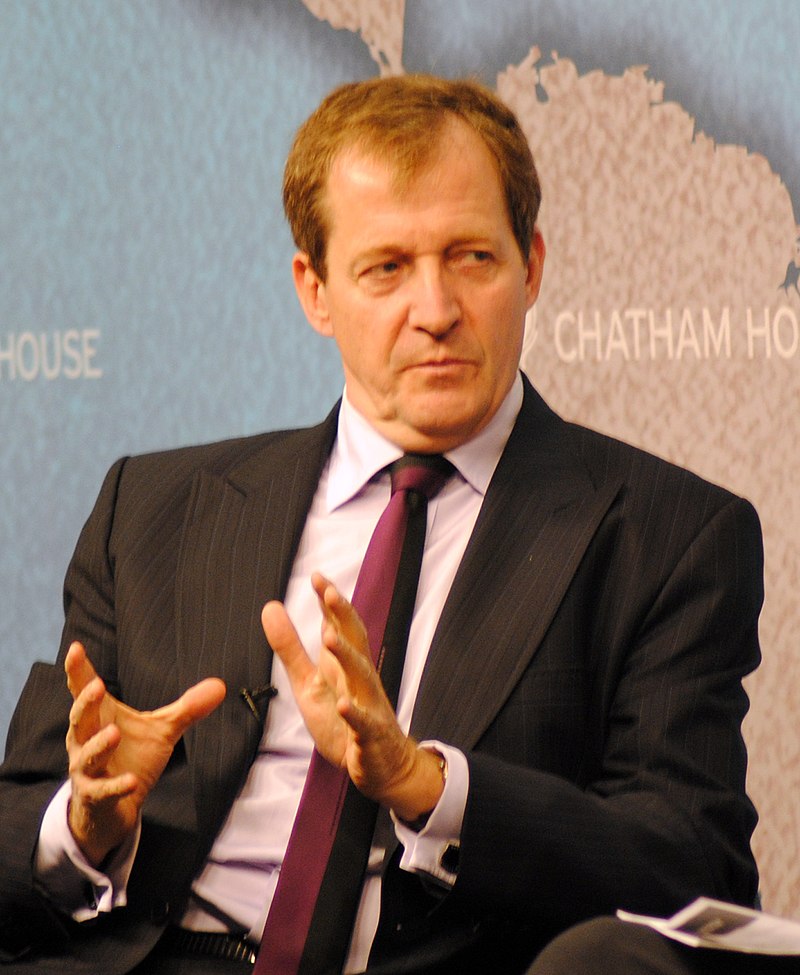Cummings’ tenure as Special Advisor (Spad for short) to Boris Johnson was far from peaceful. If anything, one may be surprised at just how he has stayed in that long. He has tackled everything from the Vote Leave Campaign (who can forget Benedict Cumberbatch’s portrayal of him in Brexit: The Uncivil War?) to driving to Barnard Castle to check his eyesight whilst recovering from COVID-19. He gained infamy by holding a press conference in the Rose Garden to defend said journey. He even clashed with Sajid Javid and Javid’s team of 'Spads' which resulted in Johnson siding with Cummings and Javid resigning in February 2020. The very fact that our Prime Minister chose his adviser over the Secretary of the Treasury is concerning enough –it clearly shows how an unelected official can hold more influence and power than an MP elected by and responsible to the people.
"An unelected official can hold more influence and power than an MP elected by and responsible to the people."
If Cummings was secure in his influence, why has he left now?
A series of long and short term events are to blame (or to thank, depending on your outlook). He has been a divisive figure since the beginning, alienating backbenchers through his lack of a party membership and his dismissive attitude to anyone below the rank of PM. He then gained the public’s ire through the Durham debacle and yet retained his post and the PM’s forgiveness. A lot has changed in the past few weeks, however. The potential promotion for Director of Communications Lee Cain to Chief of Staff (a relatively unknown Spad compared to Cummings), the alleged displeasure on Carrie Symonds’ part (Johnson’s fiancée) and a mysterious 45 minute meeting have come together as the perfect storm to cause Cain, and then Cummings, to quit/be fired. I won’t delve into the full details of the past week, as frankly I, nor the rest of the population, know the full story. Only the men in that room have the full picture.
The full details of the Downing Street psychodrama remain a mystery.
His departure raises questions for the future. Can the Prime Minister justify hiring more Spads when the previous one has come under such intense scrutiny? For that, we must look to the past.
The first Spads were appointed in 1964 by Harold Wilson as part of his ‘Kitchen Cabinet’ style of governing, inspired by the American model of governance. They began as political allies that weren’t MPs and would give him advice, which unlike the advice of civil servants, could be biased. They have since expanded to hold several titles like Director of Communications and Chief of Staff. Most have been unremarkable and undertook their roles without much controversy.
Special Advisors "began as political allies that weren’t MPs and would give him advice, which unlike the advice of civil servants, could be biased."

One in particular stands out, however: Alastair Campbell. He held the role of Downing Street Press Secretary and then Director of Communications in 1997-2003 under Tony Blair. Unlike his predecessors, he was intensely scrutinised and even labelled a “spin doctor” by various media outlets. Not only did he deliberately leak information regarding the decommissioning of HMY Britannia to distract press from the infidelity reports of a government minister in August 1997, he also played a role in the preparation and release of the Iraq “Dodgy” Dossier that came under scrutiny in 2003 for being “sexed-up”. He later stepped down in 2003 due to the intense media scrutiny endured (sound familiar?) but he continued to assist behind the scenes as a Campaign Manager in 2005, 2010 and 2015 for Labour. The example of Campbell shows us that Cummings isn’t the first Spad to undergo media scrutiny, which was clearly enough to result in Campbell’s resignation. If the role of Spads managed to survive after Campbell, does that mean they can survive after Cummings?
The strength of a Special Advisor comes from their anonymity. As Alistair Campbell has shown, after this dissolves, their career in Downing Street suffers accordingly.
We now return to the crucial question: will Special Advisors become a thing of the past? It is incredibly unlikely. They have been part of the political process for so long and it is almost convention now to have an entourage of Spads. One need only look to our constitution to see that Britain is fond of its conventions, so their survival is likely (if not guaranteed). As to whether the use of Spads will increase or decrease in the future is less obvious.
Prime Ministers have found them invaluable in the past and Boris Johnson is no exception to this. If anything, Johnson relies more on Spads than any other Prime Minister; he hired a record 44 in 2019, considerably more than Brown who hired 24 Spads in 2008 and Cameron who hired 32 in 2015. It is blatantly clear that Johnson cannot govern without Spads and their input. It also helps that the current government is unflappable in the face of controversy (we’re looking at you Priti Patel) so it would not be much of an imposition to maintain and potentially expand the role. Such an expansion will become clear in December, when they release the yearly Spad report.
"It is blatantly clear that Johnson cannot govern without Spads and their input"
It is also clear that in the long term history of Spads that very few have garnered much attention. The ones that have, Cummings and Campbell, have done so in recent years however. It is therefore a possibility that future Spads will continue to become even more prominent and targeted by the media, which could get to the point where the role of Special Advisor is more trouble that its worth. Only time will tell.
Featured Image: 10 Downing Street: Source: Wikimedia Commons.
Alistair Campbell pictured in 2012: Source: Wikimedia Commons.